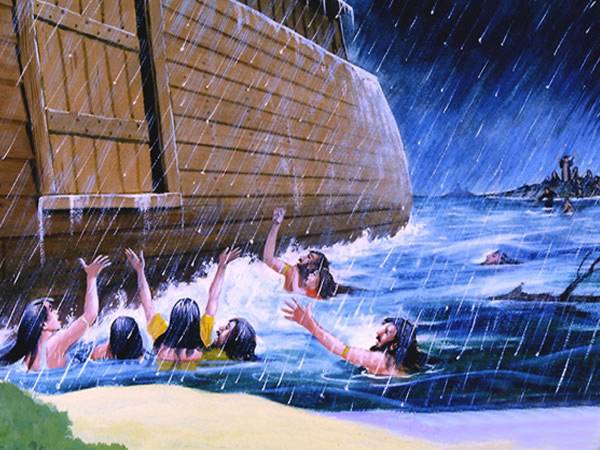Why Do Some People Believe So Strongly in Evolution?
Why Do Some People Believe So Strongly in Evolution?
 Days of Noah and the Second Coming
Days of Noah and the Second Coming
There are two earth-shattering events which cannot be explained on the basis of uniformitarianism. The first was the creation of the world and the second event was the worldwide flood. It was the second of these two events, the flood, which was the basis for Peter’s comparison with the Second Coming of Jesus Christ and the final destruction of the world.
What can humanity expect in the near future—at the Second Coming of Christ? Like it was in the days of Noah, today’s world is filled with political corruption, lying, slander, public displays of depravity, violent crimes, abortion, theft, adultery, drug-taking, drunkenness, gambling, and greed of all kinds, not to mention wars, rumors of wars, and terrorism. Does this sound familiar? (Refer to Romans 1:18–22.) Just like in the days of Noah (antediluvian period – Age of Conscience), “The Lord saw how great man’s wickedness on the earth had become, and that every inclination of the thoughts of his heart was only evil all the time.” (Genesis 6:5, NIV)
The teaching echoed by both Christ (Matthew 24:37–39; Luke 17:26–27) and Peter (2 Peter 3:6–7) in the New Testament speaks of the destruction of mankind by flood and then by fire at the time of Chris’s return.
“As it was in the days of Noah, so it will be at the coming of the Son of Man. For in the days before the flood, people were eating and drinking, marrying and giving in marriage, up to the day Noah entered the ark; and they knew nothing about what would happen until the flood came and took them all away. That is how it will be at the coming of the Son of Man.” (Matthew 24:37–39, NIV)
“Just as it was in the days of Noah, so also will it be in the days of the Son of Man. People were eating, drinking, marrying and being given in marriage up to the day Noah entered the ark. Then the flood came and destroyed them all.” (Luke 17:26–27, NIV)
The parallels between the days of Noah and the Second Coming are described by the apostle Peter as well:
“Know this first of all, that in the last days mockers will come with their mocking, following after their own lusts, and saying, ‘Where is the promise of His coming? For ever since the fathers fell asleep, all continues just as it was from the beginning of creation.’ For when they maintain this, it escapes their notice [“deliberately forget,” NIV] that by the word of God the heavens existed long ago and the earth was formed out of water and by water, through which the world at that time was destroyed, being flooded with water. But the present heavens and earth by His word are being reserved for fire, kept for the day of judgment and destruction of ungodly men.” (2 Peter 3:3–7, NAS) [Bold, emphasis added]
Many biblical scholars believe that we are at that time today in world history with the revival of the nation of Israel on May 14, 1948, and fulfilment of the “times of the Gentiles” when Jerusalem was recaptured by Israel in June 1967. In this passage of Scripture, the apostle Peter spoke of a day in the future when men would scoff at the possibility of Christ’s Second Coming as a cataclysmic, global intercession by God into world affairs. And the reason for this skeptical attitude is multifold: pagan rebellion and unbelief in God, and blind obedience to evolutionary doctrine. Essentially, it is the belief that God has never intruded and judged the world through a worldwide flood. Because we are told by atheistic academia and evolutionists that this is so, most people show little or no concern for God’s future judgment as foretold in the Bible.
![]()

